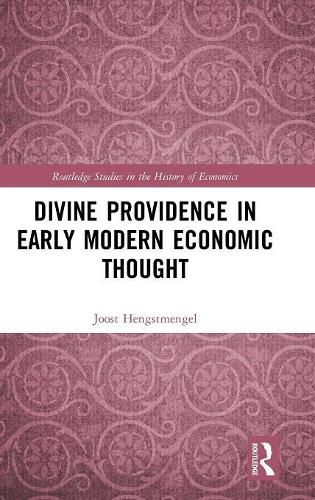Readings Newsletter
Become a Readings Member to make your shopping experience even easier.
Sign in or sign up for free!
You’re not far away from qualifying for FREE standard shipping within Australia
You’ve qualified for FREE standard shipping within Australia
The cart is loading…






In this important volume, Joost Hengstmengel examines the doctrine of divine providence and how it served as explanation and justification in economic debates in the sixteenth, seventeenth and eighteenth centuries throughout Western Europe. The author discusses five different areas in which God was associated with the economy: international trade, division of labour, value and price, self-interest, and poverty and inequality. Ultimately, it is shown that theological ideas continued to influence economic thought beyond the Medieval period, and that the science of economics as we know it today has theological origins.
Interdisciplinary in nature, this book will be of interest to advanced students and researchers in the history of economic thought, the history of theology, philosophy and intellectual history.
$9.00 standard shipping within Australia
FREE standard shipping within Australia for orders over $100.00
Express & International shipping calculated at checkout
In this important volume, Joost Hengstmengel examines the doctrine of divine providence and how it served as explanation and justification in economic debates in the sixteenth, seventeenth and eighteenth centuries throughout Western Europe. The author discusses five different areas in which God was associated with the economy: international trade, division of labour, value and price, self-interest, and poverty and inequality. Ultimately, it is shown that theological ideas continued to influence economic thought beyond the Medieval period, and that the science of economics as we know it today has theological origins.
Interdisciplinary in nature, this book will be of interest to advanced students and researchers in the history of economic thought, the history of theology, philosophy and intellectual history.